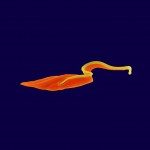Lien vers Pubmed [PMID] – 21965287
Mol. Biol. Cell 2011 Nov;22(22):4205-19
The protozoan parasite Trypanosoma brucei is responsible for sleeping sickness and alternates between mammal and tsetse fly hosts, where it has to adapt to different environments. We investigated the role of two members of the ALBA family, which encodes hypothetical RNA-binding proteins conserved in most eukaryotes. We show that ALBA3/4 proteins colocalize with the DHH1 RNA-binding protein and with a subset of poly(A+) RNA in stress granules upon starvation. Depletion of ALBA3/4 proteins by RNA interference in the cultured procyclic stage produces cell modifications mimicking several morphogenetic aspects of trypanosome differentiation that usually take place in the fly midgut. A combination of immunofluorescence data and videomicroscopy analysis of live trypanosomes expressing endogenously ALBA fused with fluorescent proteins revealed that ALBA3/4 are present throughout the development of the parasite in the tsetse fly, with the striking exception of the transition stages found in the proventriculus region. This involves migration of the nucleus toward the posterior end of the cell, a phenomenon that is perturbed upon forced expression of ALBA3 during the differentiation process, showing for the first time the involvement of an RNA-binding protein in trypanosome development in vivo.




